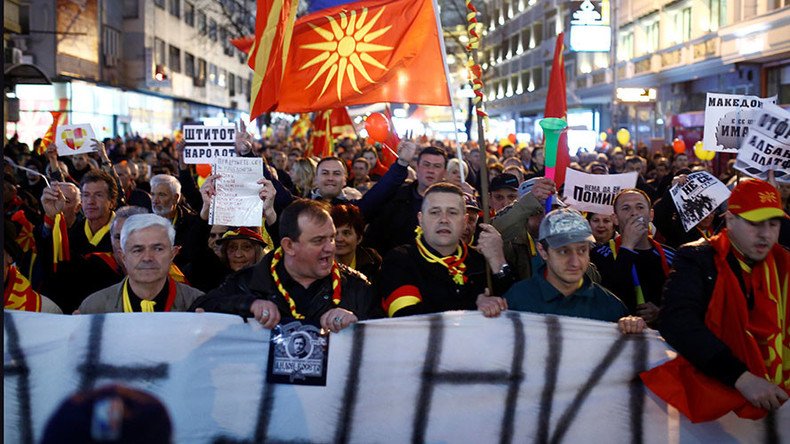Senators ask Tillerson to probe US 'fomenting unrest' in other countries
Six Republican senators are demanding a State Department review of US taxpayer money being spent on meddling in foreign countries’ politics via NGOs run by billionaire George Soros, citing Macedonia and Albania as the most recent examples.
In a letter sent to Secretary of State Rex Tillerson on Tuesday, the lawmakers express concern over reports that US foreign aid has been channeled to support “left-leaning parties” and the “progressive agenda” in places like Albania and Macedonia. The two Balkans countries are just “timely examples,” with reports of similar US meddling coming from Africa and Latin America as well, the senators wrote.
The letter was signed by Senators Mike Lee (R-Utah), James Inhofe (R-Oklahoma), Thom Tillis (R-North Carolina), Ted Cruz (R-Texas), David Perdue (R-Georgia) and Bill Cassidy (R-Louisiana).
"This includes reports of diplomats playing political favorites, USAID funds supporting extreme and sometimes violent political activists, and the US government working to marginalize the moderates and conservatives in leadership roles,”said Lee, adding that “this behavior is unacceptable and must be halted immediately.”
As examples of US interference, the senators cite the situation in Macedonia, a landlocked Balkans country once a part of Yugoslavia and currently in the throes of a political crisis featuring a restless ethnic Albanian minority.
“We have received credible reports that, over the past few years, the US Mission there has actively intervened in the party politics of Macedonia, as well as in the shaping of its media environment and civil society, often favoring left-leaning political groups over others,” the letter says. “We find these reports discouraging and, if true, highly problematic.”
Macedonia currently has a caretaker government, as no party has being able to form a majority coalition following the December 2016 election. Prime Minister Nikola Gruevski (VMRO-DPMNE) is accusing the US of pushing an alliance between Zoran Zaev’s Social Democratic Union of Macedonia (SDSM) and the ethnic Albanian Democratic Union for Integration (BDI).
Earlier this month, President Gjorge Ivanov vetoed the proposed coalition between Zaev and ethnic Albanian parties, on grounds that it could potentially “destroy” the country. As a condition of their participation in the government, Albanians are insisting on a seven-point platform – co-written by governments in Albania and Kosovo – that includes a demand to make Albanian an official language in Macedonia.
‘Macedonia not a country – sorry’ US Congressman says it should be partitioned by neighbors such as Kosovo &Bulgaria https://t.co/nOpdaolTfU
— RT (@RT_com) February 9, 2017
US meddling in Albania “appears to follow a pattern of alarming activity in this volatile region,” the senators wrote, pointing to Soros organizations in that country promoting specific reforms ahead of the June 18 general election, which the opposition is threatening to boycott as unfair. Such activity is even more concerning “in light of international reports of increasing government corruption in Albania and the renewed power of drug trafficking and organized criminal groups in the country,” the letter said.
Back in 2011, Soros himself wrote about unrest in Albania to then Secretary of State Hillary Clinton, saying, “My foundation in Tirana is monitoring the situation closely and can provide independent analysis of the crisis.”
The new Trump administration should seize the moment “to review how our tax dollars are being utilized in order to halt activities that are fomenting political unrest, disrespecting national sovereignty and civil society, and ultimately undermining our attempts to build beneficial international relationships,” says the letter.
The six senators are asking for an investigation that would review “all funds associated with promoting democracy and governance and review the programs, accounts, and multiplicity of US entities involved in such activities.”
Soros’s Open Society Foundation, along with USAID and the National Endowment for Democracy, have been accused of fomenting “color revolutions” from Serbia in 2000 to Ukraine in 2014, in order to install in power governments friendly to Washington.
Senators' letter to Secretary of State Tillerson










Comment